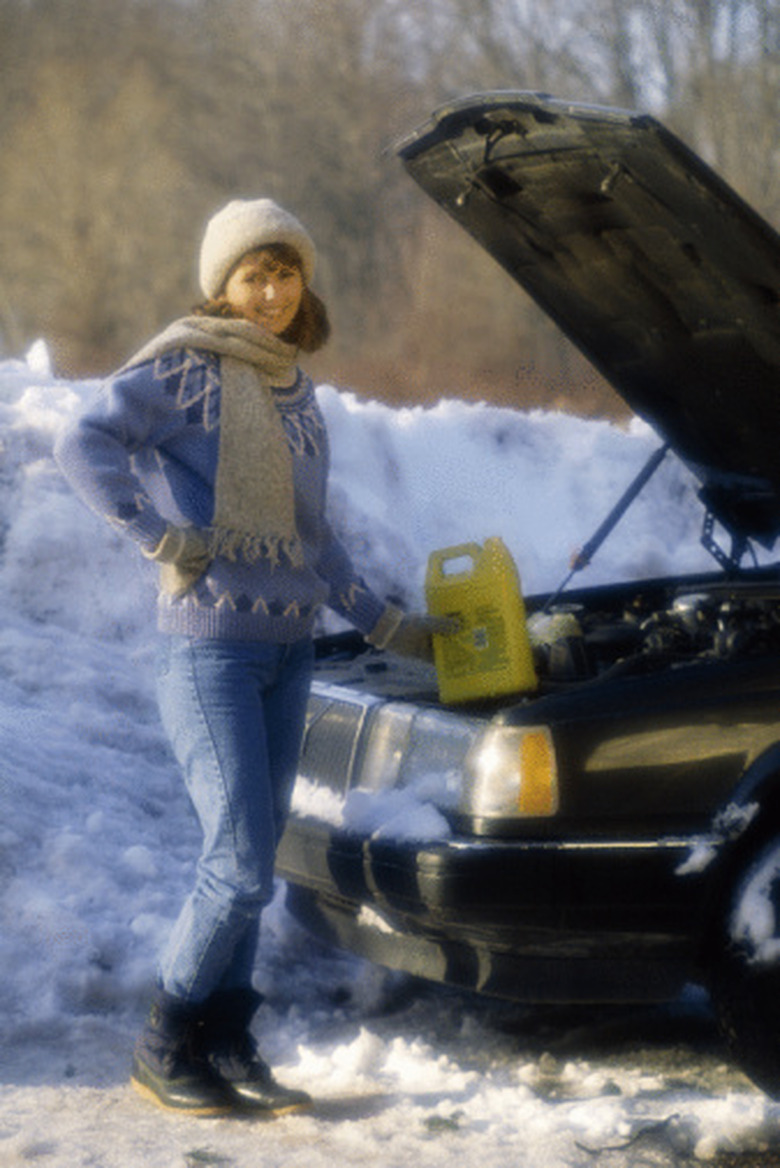What Are The Effects Of Antifreeze On The Environment?
Antifreeze is a liquid that lowers the freezing point of another liquid when added to it. It is most commonly used in automobile and other internal combustion engines and mixed with water to protect the cooling system from freezing or as a heat transfer fluid. Antifreeze also acts as water boiling prevention in the summer, increasing the boiling point by more than 10 degrees Fahrenheit. Though essential to automobiles, antifreeze is toxic to plants, animals and the environment, and should be treated and stored with great care.
Chemical Composition
Chemical Composition
Antifreeze is made of either ethylene glycol or propylene glycol. They are similar chemicals, but propylene glycol is significantly less toxic. The more common of the two, ethylene glycol, has a slightly higher boiling point and is cheaper to produce. Both of these chemicals do eventually break down into nontoxic byproducts — carbon dioxide and water — if left alone, but in the interim are toxic substances.
Toxic to Animals and Plants
Toxic to Animals and Plants
Antifreeze spills should be cleaned up as fast as possible. Though propylene glycol is less toxic, ingestion of a small amount of antifreeze can damage the central nervous system, even causing death in some cases. Its bright green color and sweet taste can be deceptively attractive to those who don't know it is poisonous, like animals and small children. An estimated 10,000 cats and dogs are accidentally poisoned by antifreeze annually through ingestion. Antifreeze spills on lawns will kill the grass if not cleaned up immediately.
Heavy Metal Contamination
Heavy Metal Contamination
Over time, antifreeze will break down and form acids that corrode the inside of the automobile's cooling system. In doing this, the antifreeze becomes contaminated with heavy metals, fuel and other grit from the engine. These include lead, tin, copper, zinc, iron and benzene — some toxic in their own right. These substances, carried and deposited by antifreeze, can contaminate soil and water, poisoning organisms and damaging habitat.
Proper Disposal
Proper Disposal
Between 25 percent and 50 percent of the 400 million gallons of antifreeze produced annually ends up disposed of improperly, polluting the environment, EET Corp. reports. The major cause of this is dumping by consumers. Though antifreeze on its own will break down to nontoxic substances, the damage before this happens and the heavy metals and other contaminants still pose a serious environmental risk. Antifreeze should be taken to a recycling center for proper disposal.
Cite This Article
MLA
Powers, Jason. "What Are The Effects Of Antifreeze On The Environment?" sciencing.com, https://www.sciencing.com/info-8573984-effects-antifreeze-environment/. 9 January 2018.
APA
Powers, Jason. (2018, January 9). What Are The Effects Of Antifreeze On The Environment?. sciencing.com. Retrieved from https://www.sciencing.com/info-8573984-effects-antifreeze-environment/
Chicago
Powers, Jason. What Are The Effects Of Antifreeze On The Environment? last modified March 24, 2022. https://www.sciencing.com/info-8573984-effects-antifreeze-environment/
